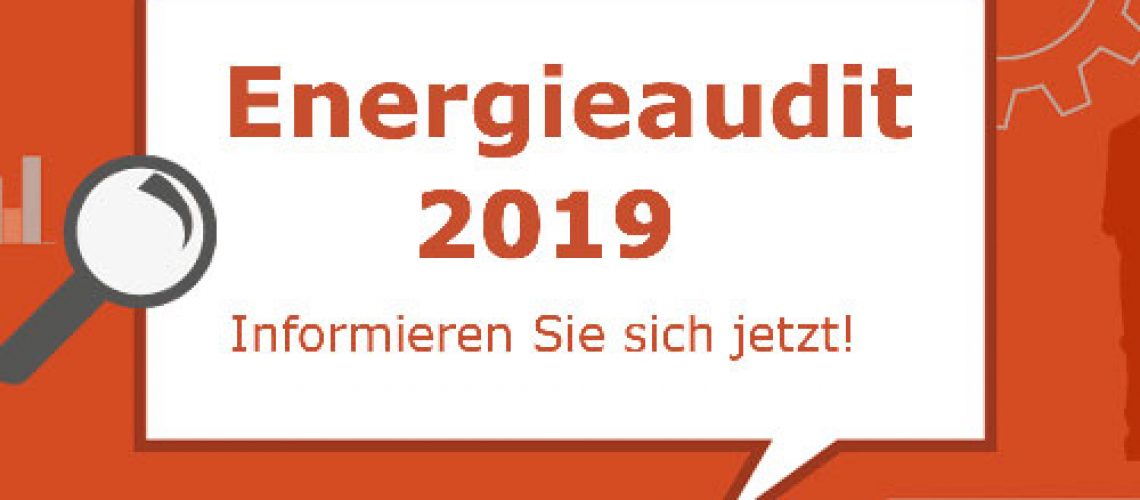The next cycle of energy audits is in full swing. Many companies affected by the energy audit requirement will have to complete the repeat audit by the end of 2019. Therefore it is urgent to begin. There are some innovations that need to be considered in the energy audit requirements.
For companies that have not yet started the energy audit, we recommend contacting us as soon as possible to carry out an energy audit by the end of 2019. In the event that we have already carried out the initial audit on your premises, we would like to point out that thanks to our systematic approach, it is possible to access the data already collected during the initial audit. This means they only need to be updated and your internal effort is greatly reduced.
The energy audit is based on the German Energy Services Act (EDL-G). This is to be amended. The amended version has already been adopted in accordance with a Recommended Resolution of the German Committee for Economy and Energy on 27.06.2019 in the German parliament and now has to be approved by the German Federal Council. Should the current draft actually become law, there would be two important changes:
1. The idea is for the de-minimis limit for the energy audit obligation to be 500,000 kWh. Accordingly, companies that are not SMEs but whose total energy consumption is less than 500,000 kWh per year are exempt from the energy audit obligation.
2. The idea is for a reporting obligation to carry out the energy audit to replace random sampling. If this were to happen, companies would have to actively report selected information on a platform.
The German Federal Council is expected to deal with the EDL-G on 20th September 2019. Entry into force is expected in October.
Almost concurrent with the EDL-G being adopted in the German parliament, the German Federal Office of Economics and Export Control (BAFA) has updated the leaflet on energy audits and the guidelines for reporting. The relevant change primarily affects companies or groups of companies that partially cover the energy audit obligation via an environmental management system according to EMAS or an energy management system according to ISO 50001. For example, it is now possible to include in the recurrent audit the companies or locations that have already introduced one of the management systems mentioned when determining the total energy consumption of the Group. For example, it is possible that in some special cases the number of sites to be audited may be reduced in the recurrent audit due to the changed calculation.
Should you have any questions regarding the energy audit or the changes to the legal requirements, please do not hesitate to contact us. Your contact at Arqum: Lena Strauss


